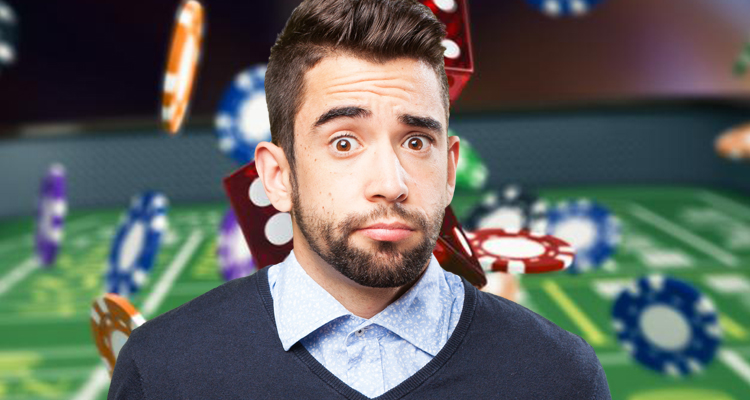Casino Myths Undone

Frank Scoblete 09:26 Sep 16th, 2006 Games
Most people who are well read in casino gambling know that quite a few of the common myths gamblers have are mistaken.
For example, slot machines do not have predetermined win and loss cycles. Everything that happens inside a slot machine's Random Number Generator is, well, random, or as close to random as humans can make it. Those streaks you see are what mathematicians call "fluctuations in probability" or, as we normal people say, good or bad luck.
With every spin of the reels the chance of this or that result happening is exactly the same as it was on the last spin of the reels.
But slot players aren't the only ones who labor under misconceptions. Table game players, too, have a host of myths, misperceptions, and money-losing ideas when it comes to their games of choice.
I received an email from Jim who was upset that he had played a blackjack game in Las Vegas that I had recommended.
He wrote: "Mr. Scoblete, you had better rethink your analysis of the Las Vegas blackjack games. I played that 6-deck game that you said was the best in the city and I lost my entire buy in. How could that game be the best when I lost so much so fast?"
Jim was under the impression that just because a game is rated good or great or the "best in the city," it must equal a win for the player. Nothing could be further from the truth.
A blackjack game is judged good or bad based on the rules of the particular casino and based on the penetration the casino gives. Penetration is how deeply or how shallowly the dealer goes into the deck or shoe before he shuffles. Deep penetration is usually considered good, shallow penetration is usually considered bad.
The game I recommended had extremely deep penetration and replied: "The game that I recommended based on its penetration would be good for a card counter to play but it is not good for a basic strategy player to play.
Games that are good for card counters are also good for casinos because casinos deal many more hands out and these hands are overwhelmingly dealt out to players who do not have an edge over the casino. That translates into big wins for the casinos and losses for the players.
You want to look for games with poor penetration but good rules. Most casino executives are not aware that if they offered deep penetration, they would make more money. Sure, card counters would get their 1 percent edge but the other players, playing with one-half to two percent edges against them would more than make up for what any card counter could win. Jim, whenever you see ratings for blackjack games, you have to ascertain if the writer is writing for card counters or basic strategy players. The article you read was for card counters. What's good for them is bad for you."
Another common myth is that when you are playing blackjack, you must always assume the dealer has a 10-valued card in the hole. So if a dealer is showing a 10, you assume he has a 20 and make your hitting and standing decisions accordingly. Not so. There are sixteen 10-valued cards and 36 non-10s in a deck of 52 cards. It is much more likely that the dealer has a non-10 in the hole than a 10, especially I f his upcard is also a 10.
Your basic strategy decisions have nothing whatsoever to do with what you "think" the dealer has in the hole. They are made strictly based on the dealer's upcard. When the computer figures out what is the best way to handle, say, your 14 against a dealer's 8 upcard, it goes through every possible combination of hole card and results against them based on hitting, standing, doubling, etc., to come up with the best way to play the hand.
Finally, there is some misunderstanding as to whether it is better to play one or two spots. Some blackjack players think that you have a better chance to win when you play two spots; others think you have a better chance to lose if you play two spots. Both are wrong. Assuming you keep the same total bet on two hands that you would have had on one hand (if you were betting $50 on one hand, you would bet $25 on each of two hands), the only difference between playing two hands instead of one has to do with the volatility of the game. By playing two hands, you will have many occasions where one hand wins and one loses. The big winning and losing streaks will be somewhat diminished because of the fact that as you play more decisions things tend to flatten out; that means, your results begin to reflect the math of the game. Playing two hands gets you into the long run twice as fast. So you tend to be able to last longer in any given session by playing two hands.
What are the end results of such a strategy? If you are a basic strategy player, you will lose approximately one-half percent of the total money that you bet, whether you bet it on one hand, two hands or more.
Needless to say, myths and superstitions abound in gambling almost as much as they abound in real life.
But please keep this in mind, being superstitious can bring bad luck; knock on wood!
On This Page



